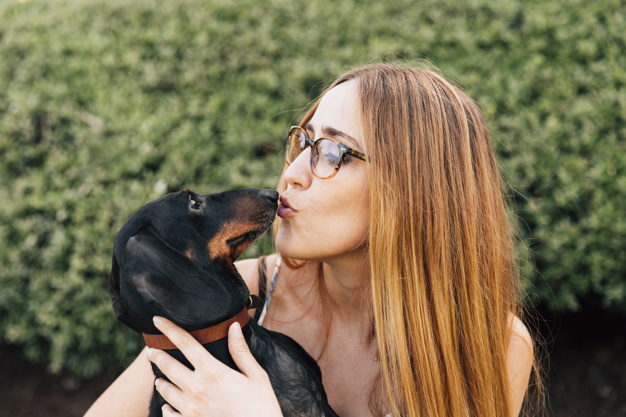Our dogs might remember a lot more than we have given them credit for…
It has long been an old adage that dogs do not reflect on events in the recent past. For this reason you should never chastise them after an event such as a chewing of your chew or a little puddle on the floor.
That body language you are seeing, whereby they look so incredibly guilty (head down, ears tucks, paw raised, eyes half closed and looking away) is in fact appeasing behaviour. He was most likely really happy to see you coming in the door but once you notice your new shoes in bits your face darkens. Dogs notice this change in your demeanour and know what it comes next. Anger. Not really knowing why your mood has changed your dog moves straight into appeasement mode, effectively saying “OK, cool it, it wasn’t me, please don’t angry, I’m totally harmless and submitting”.
Unfortunately for dogs we humans see this behaviour as the dog reeking of guilt…
I mean, look how guilty this gorgeous pit bull looks!!!
(I often worry that dogs in videos like these are in fact used to seeing this angry face many times before but lets assume, as the above guy is something of a trainer, he has never laid a hand on the dog, and I think I can hear him clicking which make me think this guy was cleverly trying to make a really popular video for himself!!! It worked!).
One theory is that a lack of remorse maintains group cohesion…
It was thought that while dogs may have pretty accurate memory when it comes to people (especially if they come packing treats) and places (especially if they come packing treats) and clearly display most of our other emotions including happy, sad, anger, love, jealousy, it was thought that they have very little sense of self. That they appear to live in a king of eternal present (doesn’t that sound nice?!). While they can be taught key behaviours through repetition, they do not reflect on their role in single events the same way we do. Thus they do not link the chewed up the shoe to your angry face. Maybe if it happened ten times in a row over ten days.
One theory that most new trainers here was that this may of helped them argue with each other over resources but quickly get over it, maintaining group cohesion.
Well, that was certainly the thinking up to recently. A new study published in current biology by the guys in Hungary (Claudia Fugazza and her colleagues at the Family Dog Project at Eotvos Lorand University in Budapest, a city which produce copious amounts of behavioural studies of many animals, not just dogs) set out to investigate the dogs’ episodic memory (as it involves a sense of self).
The “Do-as-I-do” experiment tests episodic memory…
They set up a number of dogs to participate in a “Do-as-I-do” type experiment, whereby the dog must replicate the actions of their trainer some time after the trainer performed it.
For example the trainer might do something like touch an open umbrella with his hand. Then he says, “Do it.” The dog then taps the umbrella with its paw, assuming the training is going well.
They then switch the training to asking the dogs to sit on a matt, watch their trainer do something (such as walk over and put their hands on a chair or head in a bucket) and wait for the “do-it” command. Before this is given the trainer does something the dog had not seen before, like walking in circle. Then they take the dog behind a screen for a minute to “forget” what recently occurred.
They return to the matt and the dog is given the “do-it” command. The results are clear to see in the video supplied here in the NYT article.
https://www.youtube.com/watch?v=uwX4YL01GQ0
It appears that, like rats, chimpanzees and pigeons, dogs were able to reflect on what actions occurred previously (from an hour up to a day ago, it was shown) and employ those memories to get a treat. So it appears they too have some episodic memory. Dogs may think a lot more like humans than we have given them credit for.
Critics aren’t convinced, but are they ever?!
Critics of the study highlight that the researchers are missing some of the complexity involved in episodic memories in that humans not only remember past events but also remember what we were doing at the time, who was there and roughly when it all occurred. That dogs may still be lacking many of the other components of episodic memory.
I think this is overly harsh. For sure dogs do not think exactly as we do, they remember the smells at the time instead of what else was in the room for example, as they are more nose. They of course think differently.
Nor do I think this study is a reason to chastise a pet for chewing that shoe (why’d you leave them there?!) or for that puddle on the ground (he needed a wee, it happens us all) but it definitely highlights that dogs, and probably most animals, are not simply living in the present tense like mindless robots.













